|
If you read my blog regularly you know that I am a strong believer in getting to know autism. Reading books and articles, watching movies and t.v. specials, and meeting people with autism all help to inform us (the non-autistics) about the world of autism. So far this summer I have met quite a few new people with autism and their parents and I was struck with a thought-does a parent having any previous knowledge or experience effect their child with autism, whether it be positive or negative? This post may seem judgemental because I don't know exactly whats going on in each of the families lives in these stories, but they are just observational thoughts on the time I spent with each family (in bigger group settings). We have, and have had, many struggles with Caleb, and I know we get judged on the things we do. This post is meant to be educational. These experiences were educational for me, and I wanted to pass them on. I met one family who were undereducated about autism, and clearly overwhelmed by it. They called their son "retarded" in front of a group of strangers gathered for a BBQ, and made a big song and dance out of the problems they were having with their child. I get being overwhelmed, I get not always knowing what to do and how to cope (especially at large gatherings that can overwhelm a child with autism), but I also know that if those parents educated themselves a little about autism they might realize that their son has potential, isn't a lost cause, isn't just a ball and chain around their necks. This young boy kept "stealing" cookies from the kitchen. He is 8 years old, that's pretty much a standard behaviour at that age, autism or not! He wasn't asking though, so it is poor manners. As a means of dealing with this problem, the parents would semi-shout at the boy, "you can't take food that isn't yours!". But, we were at a bbq where food was out to be eaten, so it was technically his, and everyone else's. I was watching the scene unfold, so I just went into the kitchen and moved the cookies out of sight. A few minutes later this boy came wandering into the kitchen and was clearly irritated that the cookies were gone. I said, "are you looking for the cookies?" Up until this point I hadn't heard him say a word, and he was acting quite "handicapped" (stomping around, walking awkwardly, ignoring his parents and siblings talking to him {or about him|) so I didn't know what to expect. All I knew was that (besides "acting handicapped") he seemed capable and bright. I asked again, "are you looking for the cookies?". He didn't look at me, but he answered with a gruff, "looking for the cookies" (echoing in autism is a good thing, it means the person is hearing your words and can basically understand them, but lacks the verbal skills to come up with an answer). I said, "oh, I put them away, would you like one?". He said, "would you like one", so I prompted, "yes please?", which he echoed, "yes please". I got him a cookie and held it out, waiting for a show of manners. I didn't know if he actually had any (had been taught), but most kids know they should use manners because they hear other kids being prompted to do it. So, I held it out and he went to grab for it, and I said, "what do you say?", and he said, "what do you say?". I repeated, "what do you say?". He looked me in the eye and said, "thank-you". This whole episode took just a minute or two, and his parents didn't even see it. I also didn't tell them about it. I was torn between wanting them to know their "retarded" son was quite capable, and knowing that as a parent of autism myself, I don't always appreciate when someone thinks they have figured out my child and has "fixed him" for me. So, I let it be, and I just keep praying for that young man and his family. For lack of education about autism, he may grow up (actually, I feel certain he will grow up) as the "retarded" member of that family, and he's gonna ride that train as far as it goes. When he looked me in the eye and said, "thank-you", I knew he was playing a pretty serious hand of handicapped cards, and that he was functioning below his true potential. Another family I met was a very well educated mother and father, and they had 3 kids, including one middle child with autism. Their son was younger than Caleb, but I was watching him and was struck by how similar Caleb had been at that age. Full of energy, full of trouble, but full of potential. The Mom in this family had been trained as an early childhood educator, and as an Educational Assistant. So, she knew autism. But what became apparent was that she knew the literature on autism, the symptoms, the typical way a child would be handled with autism. What she didm't seem to know was her son. I watched as she hovered over him the whole time (which I completely understand as Caleb was a run-away-er for years), but she would, "don't touch that", "don't do that", "they don't like that", and telling people as she went, "sorry, he has autism" (it always bothers me when a parent {and I'm guilty of it too!| apologizes for the autism, and not just the behaviour). Anything she would ask him to do, "pick that up, please", "sit down, please", etc., he would not do. She would sometimes repeat herself, but mostly, she would just let him not listen, and wandered away with him. The child seemed able to do all of the things she was asking, perhaps she needed to say it a few more times in case his audio processing was slow, but he seemed capable. Instead, he would not do what he was told, and she would let him. He was getting away with things his siblings weren't allowed to, all because he had autism. Her understanding of discipline for a child with autism was very much what she had been taught for disciplining a child with special needs in a school. Her and her husband didn't treat their son like he was incapable, but they seemed to not be able to get out of book knowledge and raise a human being who was respectful and obedient. They were telling their other children things, and was clearly expecting those children to do what they were being told. But their child with autism was being asked a lot of things, "would you like to eat those veggies on your plate?", and the child would stand up and walk away, with Mother going after him, "sit down please!", he wouldn't, and off they'd wander. One of the siblings said, "I think I'm full", and the Dad says, "you need to finish your vegetables first", so the child sat and finished. There was a clear boundary between the "regular kids", and the child with autism. This family was well off, was from a bigger city and therefore (presumably) had some good resources for their son, and the Mom "knew all about" autism. But they were struggling with turning this child, who did need their undivided attention and support, into a person who could listen to his parents (which can translate into being a good listener to teachers, employers, etc.) and become his very best. Another family we met had a teenage boy with autism. Both Adam and I stood talking with the teens' Mom, who was very town to earth, full of questions about Caleb, his life, his education, but also had lots of good things to share. We first realized her son had autism because we saw our Caleb going on a rambling rant to their son (who just seemed awkward and loud, which we chalked up to normal teenager behaviour!). Our Caleb has started "play talking" lately. Basically, he hears adults and children talking and talking (in a normal conversation), but, despite having a great vocabulary now, he still can't quite put together a lot of thoughts together at once. So, he has started "rambling". Literally rattling on and on about something (or sometimes many obscure subjects smooshed together) but talking really fast so you can't catch anything but every 10th word. So, Adam went to get Caleb and said to the young man, sorry if he's been talking your ear off. He likes to talk, but you can't always understand what he's saying. He has autism", to which the young man replied, "I have autism! Ouch!". Watching him and his parents was a great experience. His parents were "typical" parents of autism. They didn't know what it was until they had a child with it. But then they got him into programs, read books and articles, watched movies and specials. The Mom commits her saturdays to helping her son work through his homework, and they let him be (he did have a lot of cousins at this particular function, so they knew him), but they also expected from him what they were asking of their other children. When this young man would speak to you, he would gently take your arm, and make you turn and look at him (which is a funny turn-around because generally people with autism don't like eye contact), and when we asked his Mom later if she worked with him to do that, she said, "We did at first, but hen I read the book, "Look Me In The Eye?". Ever read it?" I had read it, and knew exactly what idea she was referencing: the author had talked about being a child with autism, and how if he was told to look someone in the eye, his hearing would shut off, he couldn't use or process any words, and his sense of touch was over-sensitive. Basically, if he looked at you, that's all he was doing. Looking at you. If you wanted him to hear what you needed to say, you needed to let him look away, sometimes even shutting his eyes to really be able to let his ears hear and process. We were refreshed with their approach to raising their son with autism. He was challenging (as she shared with us), but they always expected a lot from their son, and he delivered. What we met was a 15 year old boy who clearly had special needs, but who was happy. He kept coming over and hugging his Mom (as Caleb was also doing to me). At one point when he came over, he made me look at him and said to me, "your daughter with the yellow curly hair called me a stinker butt". I said, "oh dear, well, she is full of sass. Was she joking, or was she being mean? Did it hurt your feelings?". He said, "Well, I think she was joking, and my feelings are not hurt, but I wanted you to know". I said, "O.k, I will talk to her about it, thanks". "You're welcome", he said, and walked away. His Mom just smiled at me, and I said, "he seems great", and she said he was. These parents were just "typical" parents until this son came along, but they took it in stride, they learned what they could, but they also got to know their son, and set up boundaries and rules to help him become well adjusted and functional in society. They had set up an example of how to treat their son for the siblings to see, and his sisters treated him with respect, and with a lot of love. They clearly thought he was great, and loved him. So, education, per se, makes a big difference in raising a child with autism, but what else makes a child with autism become all they were meant to be?
Support for one. Support from the parents, the siblings, the programs the child may be in. School, church, playgroups. Wherever the child goes, support needs to be there. And I'm not necessarily talking about support like knowing what to do with a child with autism. I'm talking about support like someone who believes the child can become a great many things, can excel, can learn and is smart. Support for the child as a person, not as a special need. I also strongly believe that getting to know textbook autism is a big thing. It's sounds obvious, but that first family I talked about seemed happy with "retarded", and were fairly unfamiliar with typical autism stuff (like echoing, which as I mentioned, is not a "bad behaviour", it's an important learning tool). The third thing is getting to know your child, autism aside. The second family knew autism inside and out, but couldn't seem to get to know their son and treat him as a member of their family instead of just a person with a special need. All of these families, and my own family, are different in a lot of ways. The kids are different, our daily family life looks different, the siblings and family support are different. But we've all got a common denominator, which is autism. Education is key, it's paramount, but it looks like a lot of different things. Educating yourself about autism has many sides, but the end results should be the same: that people with autism are getting treated right. With dignity and respect, with love and compassion, and with the knowledge that they are just people. Special people, but people none-the-less.
0 Comments
Leave a Reply. |
Hi, I'm Amy-Lyn! I am the lady behind this here blog! I live in the sticks with my animals, my super handsome husband, and my
3 amazing kids! Here you'll find things from recipes (gluten-free, paleo, and strait up junk food!), DIY ideas, thoughts on raising a son with autism, and whatever else pops into my brain! : ) Read more about me by clicking here! Want to Stay Connected?
Find What
|
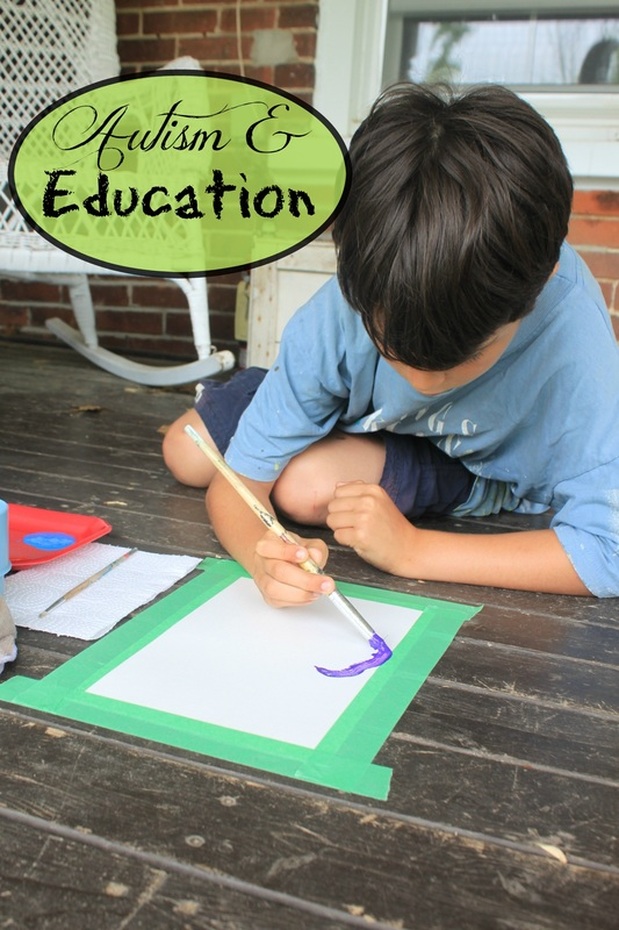
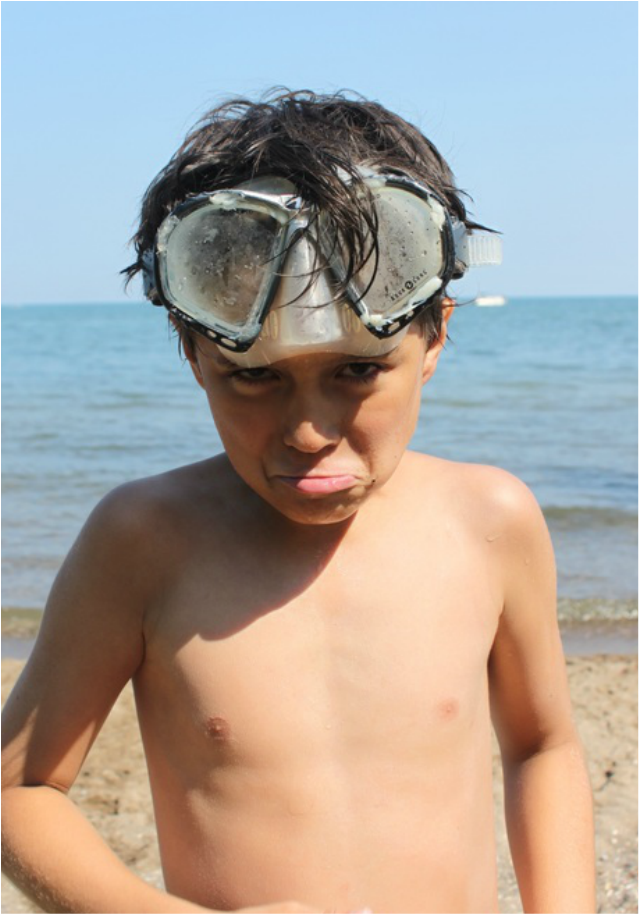
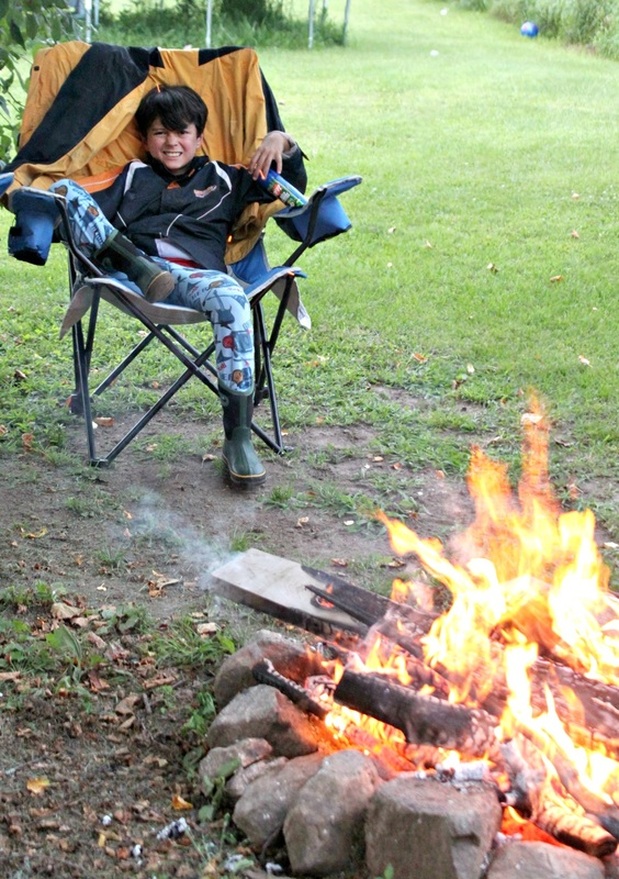
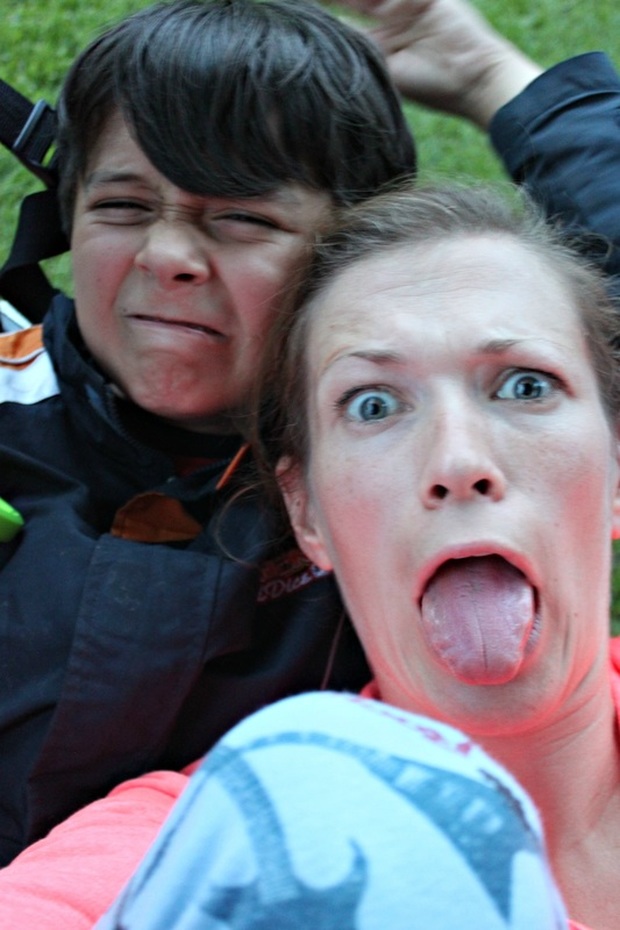
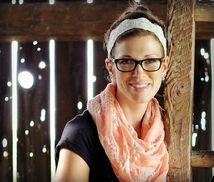
 RSS Feed
RSS Feed







